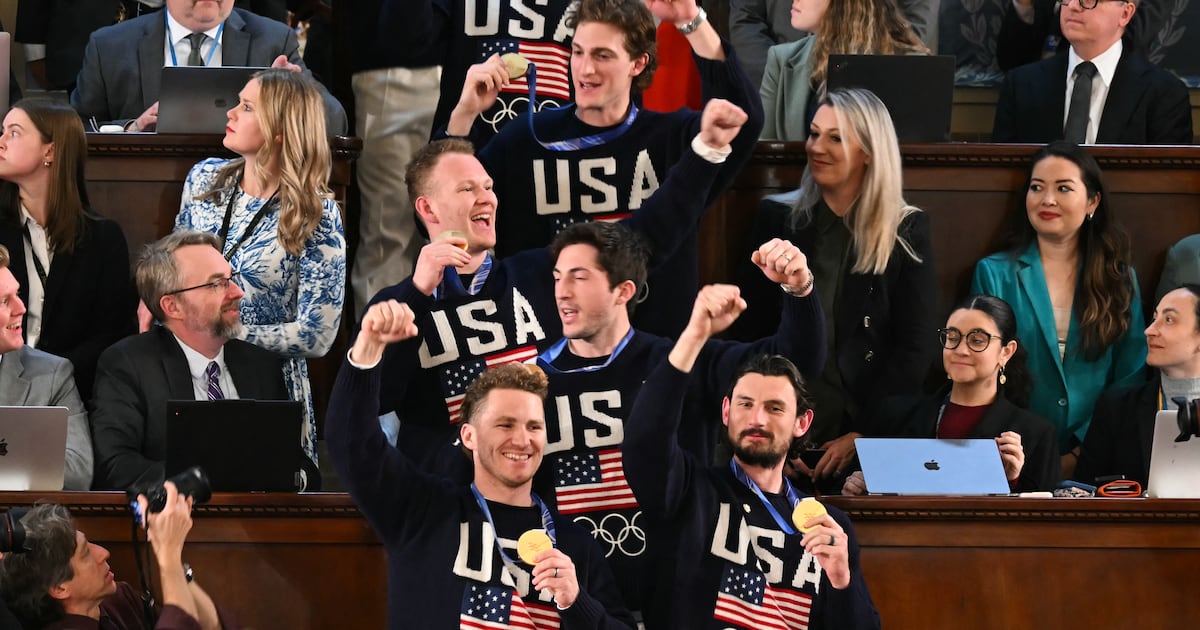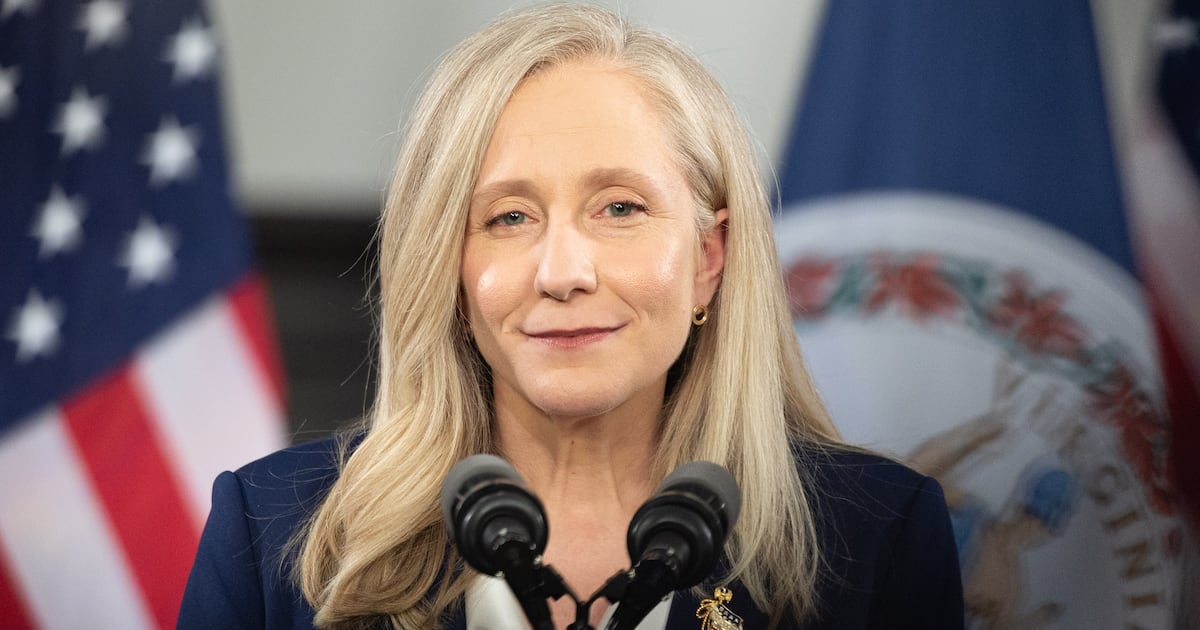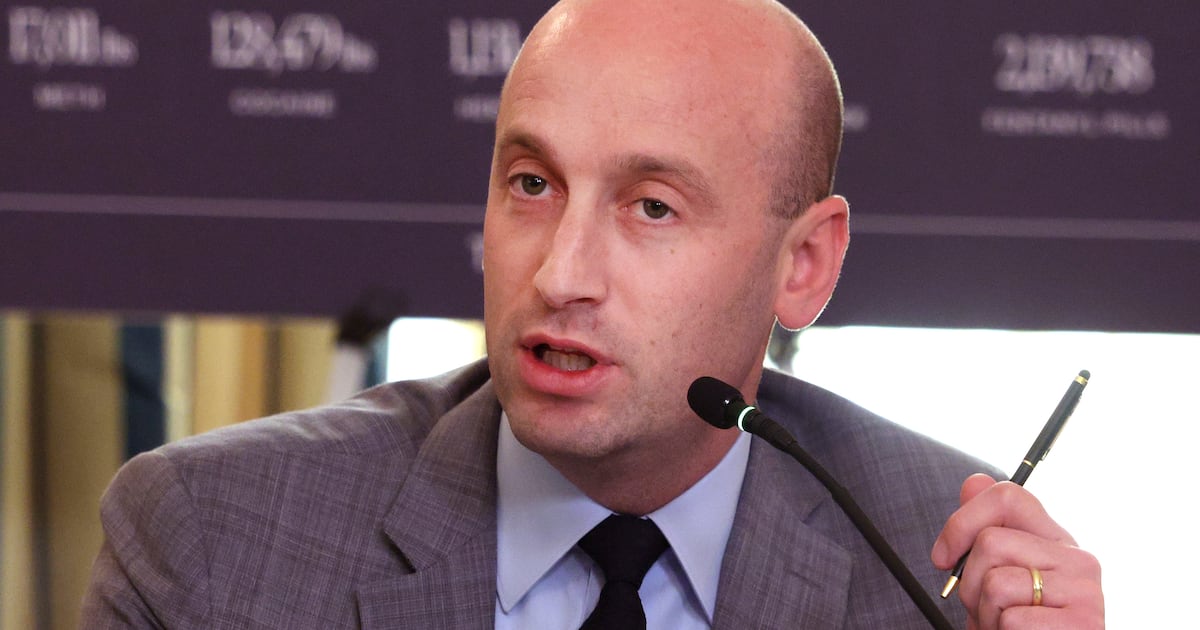Three weeks ago, Jeff Merkley (D-OR), the progressive junior senator from Oregon, made a snap decision that would alter the way the nation viewed the unfolding humanitarian crisis at the border.
Cued by a few news articles and a touch of intuition, he traveled to Texas and visited an immigrant processing center in McAllen run by the Department of Homeland Security. He also attempted to go into a Brownsville detention facility operated by the Office of Refugee Resettlement in a former Walmart but was denied access by the security there.
“This came about because I started hearing stories that were reflected in various parts of the press about children being separated from their parents,” Merkley told The Daily Beast in an interview on Monday. “And quite frankly, I found it hard to believe that was true. And felt, if this is happening, I got to get to the bottom of this. I got to find out, is this really true?"
Up until that moment, the issue of family separation had been percolating in a number of stories, including a harrowing New York Times item that noted more than 700 children had been separated from their parents. There had also been a congressional hearing in which Department of Homeland Security Secretary Kirstjen Nielsen faced difficult questions about the initiative.
But it was Merkley’s visit—the visual of a sitting U.S. senator being turned away—and subsequent media coverage that seemed to escalate the story from a horrifying but smoldering issue in the nation's political discourse into a five-alarm fire.
The senator made a conscious decision to broadcast the entire excursion in Brownsville on Facebook Live, from his moment standing in front of the building with blacked-out windows to when police arrived on the scene. Doing so made the episode a statement more than just a mere fact-finding mission. It also drew eyeballs.
Within a single day, the video had accrued over a million views—it now stands at 2.2 million. Merkley was inundated with calls and text messages from across the country, a result of him sharing his personal cell phone number during the broadcast. And when he returned to Washington, D.C. on Monday, he was quickly booked on MSNBC, which, in turn, raised his profile further. The White House deemed what he was doing “irresponsibly spreading blatant lies.”
Beyond the firestorm it ignited, Merkley’s Texas visit underscored the salience of having a visual component to a political story; that images can prove more unimpeachable than oratory alone. It also showed how lawmakers in the age of Trump are finding potency when they leave the confines of the Capitol.
The trip was one of personal discovery for Merkley as well. He had gone, in part, because he couldn’t even fathom that the harrowing stories he was reading were actually true. He couldn’t recall for sure what the article was that caught his eye about the burgeoning crisis, just that it was sometime in May and the story came “through a newsfeed” he has on his phone.
“When I went down, it wasn’t with a strong conviction that something was in disarray policywise. It was with a sense of I can’t really believe the reports I’m hearing, but I need to find out,” he recalled. “And if in fact something new and terrible is happening, I need to put a spotlight on it.”
The trip itself came together fast. Just two days before he went down to the Walmart in Brownsville, his staff booked the plane tickets. First they flew to McAllen and then made the hour drive to Brownsville where the Facebook Live was shot.
But even before they left for that drive, Merkley was warned by a member of his staff that he had not been granted a waiver to go inside. The question was raised as to whether or not it would be worth it.
“I said, ‘No, we’re here in Texas, let’s knock on the door,’” Merkley told The Daily Beast. “My team suggested it would be helpful to do it in a Facebook Live format and that made sense to me as well.”
Less than 24 hours after that broadcast ended, he was fielding questions from his Senate colleagues during a Monday evening vote on the Senate floor. “I’ve got to find out how to go. I’ve got to find out if children were being held in my state,” Merkley said, relaying some of the feedback he heard. That night, the senator joined MSNBC’s Chris Hayes for an interview about his experience during which he said the cages he saw in McAllen, in which immigrants were held, looked “a lot like dog kennels.”
During a caucus lunch the next day, Merkley said that he “asked for a couple of minutes to stand up… and talk to the entire caucus about what was going on.”
His vivid descriptions and the video of him being barred access led a number of fellow members of Congress to decide they had to see what was going on themselves. Just two weeks after the senator’s initial visit, he and more than a half dozen of his Democratic colleagues returned, this time seeing both the facilities in McAllen and Brownsville. The group included Sen. Chris Van Hollen (D-MD), who cited Merkley’s video as an impetus for him joining.
“When Senator Merkley was denied entry to the Brownsville Children's facility during his first trip to the border, the public began to wonder what the Trump administration was trying to hide,” he said in a statement. “So I thought it was important to join him on Father's Day to witness what was happening and shine an even bigger spotlight on the deliberately cruel Trump policy of forcibly separating children from their parents. I salute Jeff for his tenacity and believe that the public outcry forced the President to reverse his shameful policy just days later. But with families still needing to be reunited and kids facing possible indefinite detention, our work is far from over.”
The continuous drumbeat of footage, stories, and imagery of trauma culminated in a reversal from President Trump, who signed an executive order last week ceasing the practice of separating families. It did not, however, resolve the process of reunifying the thousands of families who had already been split up.
Looking back on the dizzying three-week span, Merkley was reticent to say that his visit alone created a domino effect. But he did concede that the experience proved the efficacy in Washington-based lawmakers actually getting out of D.C.
“I think on an issue like this, the more you can be in direct conversation with people, the better,” Merkley said.






